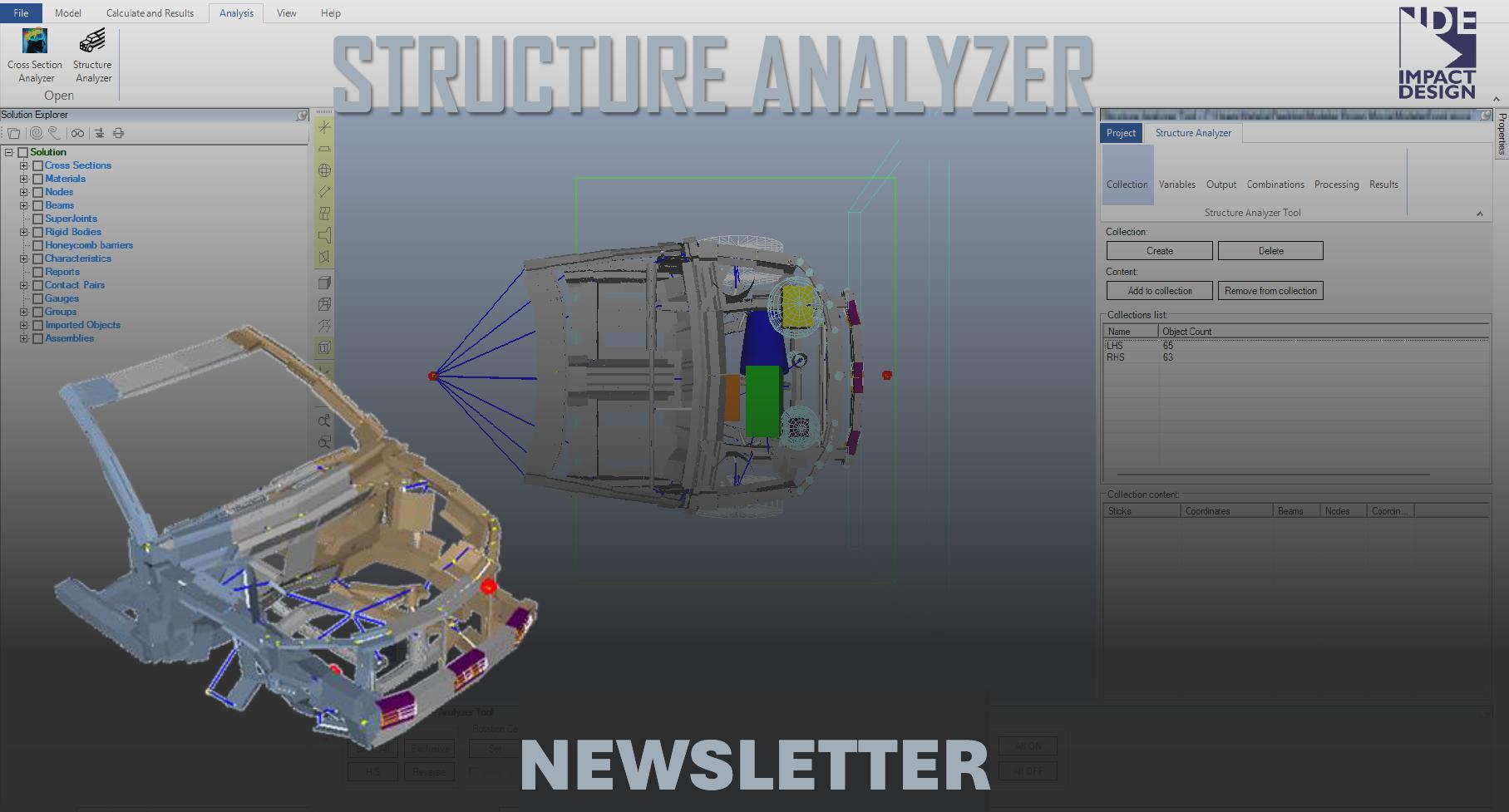The Structure Analyzer facilitates the design and analysis of multiple variants of the foundational 3D VCS model.
Structure Analyzer enables modification of the VCS model, serving as the basis for further automatic permutations according to user guidelines, by adjusting the model’s dimensions (nodes and beam coordinates). The software automatically generates design variants of the reference VCS model based on user-defined design variables. The user is granted full access to each of the generated 3D model variants.
This operation involves the capability to perform automated calculations for all intended permutations simultaneously and to subsequently compare the resultant outcomes. Integrated filtering functionalities serve to restrict the number of variants from the complete set of available models and help to identify the solution that most effectively aligns with user-defined criteria.
Structure Analyzer enables modification of the VCS model, serving as the basis for further automatic permutations according to user guidelines, by adjusting the model’s dimensions (nodes and beam coordinates). The software automatically generates design variants of the reference VCS model based on user-defined design variables. The user is granted full access to each of the generated 3D model variants.
This operation involves the capability to perform automated calculations for all intended permutations simultaneously and to subsequently compare the resultant outcomes. Integrated filtering functionalities serve to restrict the number of variants from the complete set of available models and help to identify the solution that most effectively aligns with user-defined criteria.
FIND THE PERFECT STRUCTURE AMONG MULTIPLE VARIANTS
Structure Analyzer is a VCS module that facilitates the creation of crash test model permutations by defining diverse structural design variables. Calculate, analyze, compare, and filter results for all variants simultaneously to uncover the optimal design conveniently and efficiently.USE CASE EXAMPLE – BUMPER
An example of the use case of structure analysis was discussed on the basis of a project concerning the modification of the bumper design. Many variants of this bumper will be created, the results of which will be compared and on this basis the solution most suited to the requirements will be selected. The basic bumper model will be prepared in 2 types of combinations:- the bumper will expand sideways every 10 mm in 10 steps
- the bumper will extend sideways as in case 1 and the crash box will be elongate but not more than 40 mm also in 10 steps.
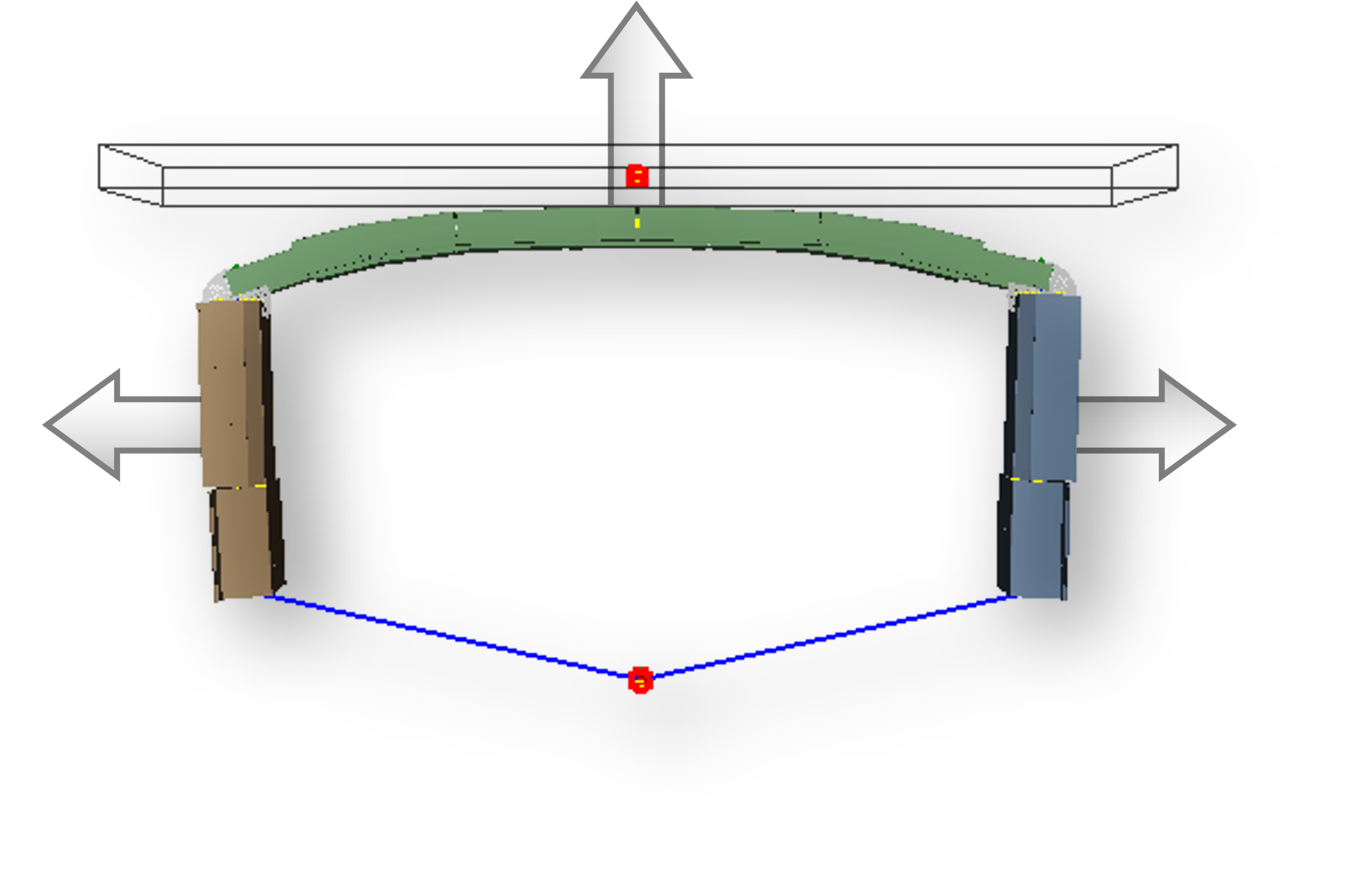 To initiate the creation of a project, it is essential to identify the model elements that require adjustment and specify their directions of movement.
To initiate the creation of a project, it is essential to identify the model elements that require adjustment and specify their directions of movement.
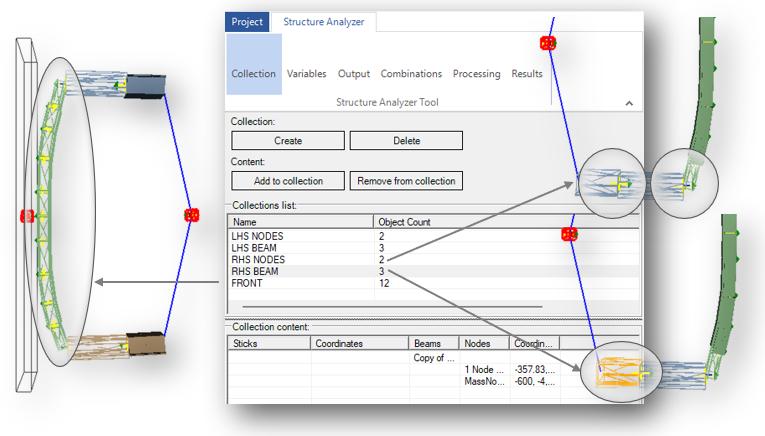
Select the elements subject to modification and create corresponding collections for them, which will be used for future design variables. In presented example nodes and offset beams of each side will be moved sideways. To increase the length of the crash box, all front bumper nodes will be moved, including the barrier node.
Define the vector along which the coordinates of nodes and beams will be altered, as well as the number of modification steps to be executed.
Additionally, it is possible to configure a variable in conjunction with another master variable, ensuring that the position changes occur simultaneously.
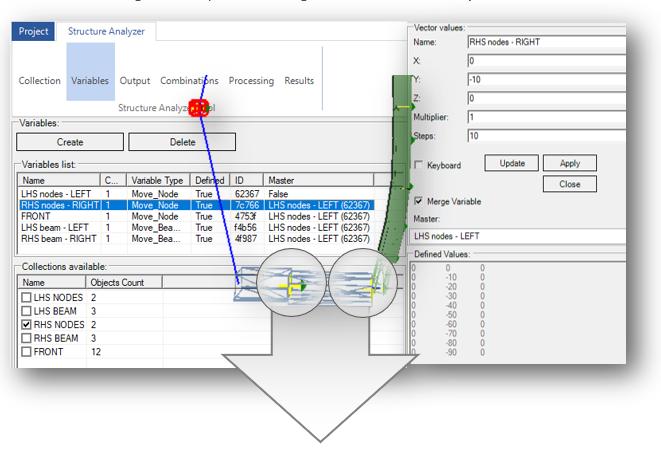
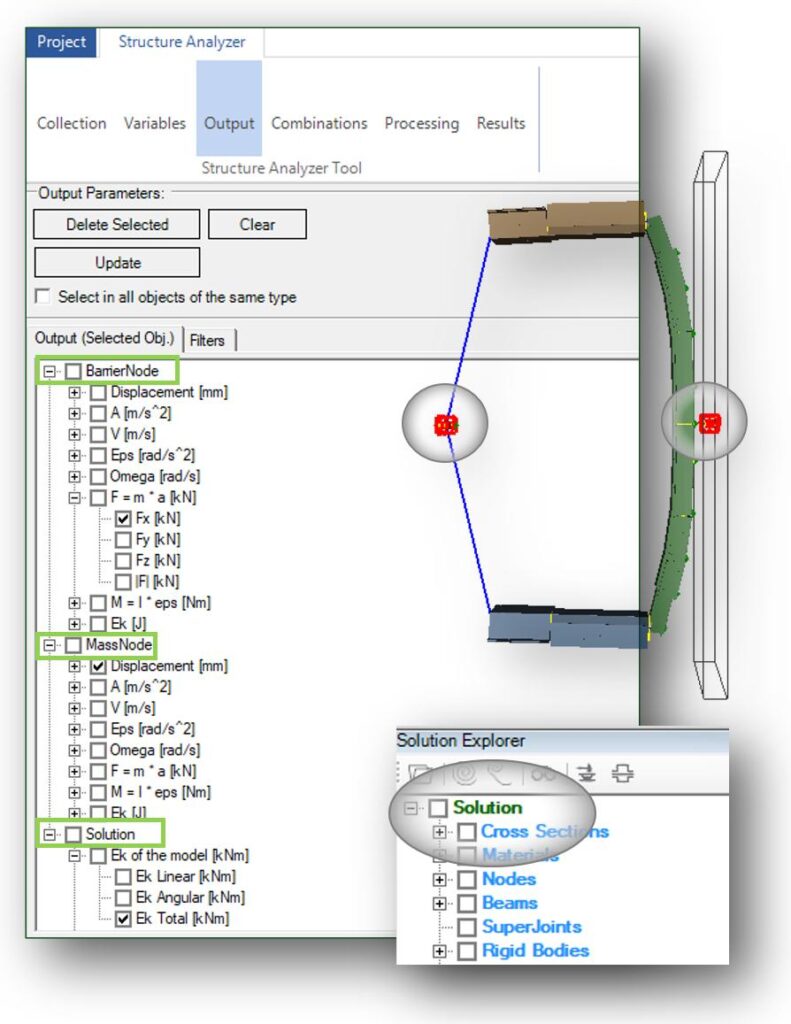
Specify which results will be available for viewing and comparison within the analysis. The procedure of results selection is analogical to the one present in VCS Chart Wizard. At this stage, it is also feasible to define the filters with which the specified outputs will be preserved.
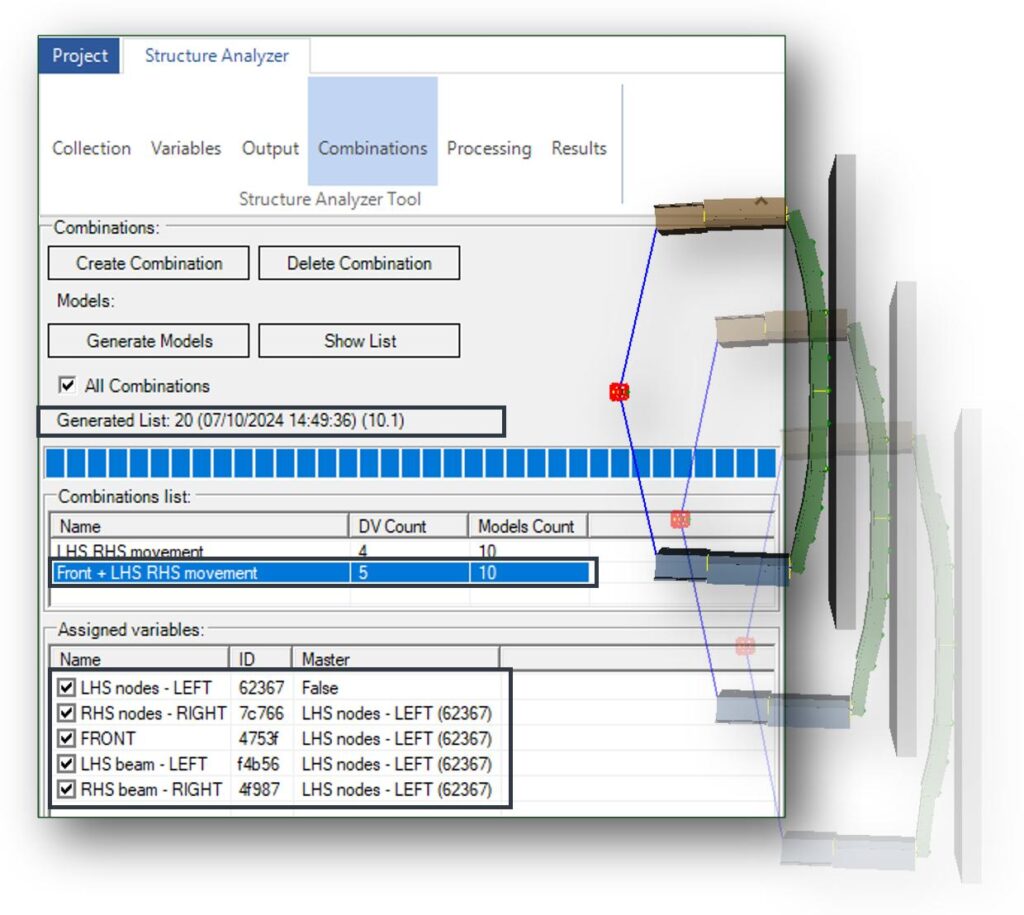
In the bumper example, two independent combinations were created that will be executed simultaneously. The first one involves moving only the side parts of the bumper and the second one combines the front and side parts. Therefore, appropriate variables are included into a common combinations.
The Structure Analyzer tool automatically generates all models with respect to the variable’s definitions.
*In presented example 20 models were generated in just 10 seconds.
Access to the generated models is straightforward. Each variant can be opened in a separate VCS instance at any time. Additionally, a comprehensive list of project permutation settings, summarizing the defined variables, is available. The design of each model will adapt according to these specified variables, and the detailed properties of each model can be examined at any given moment.
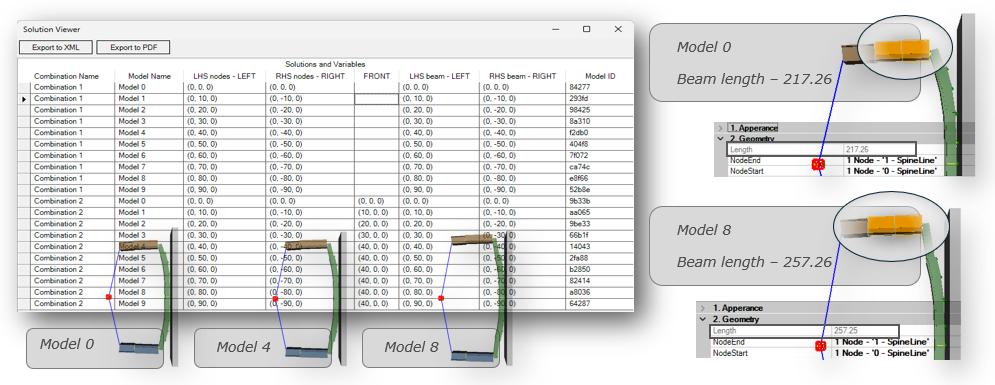
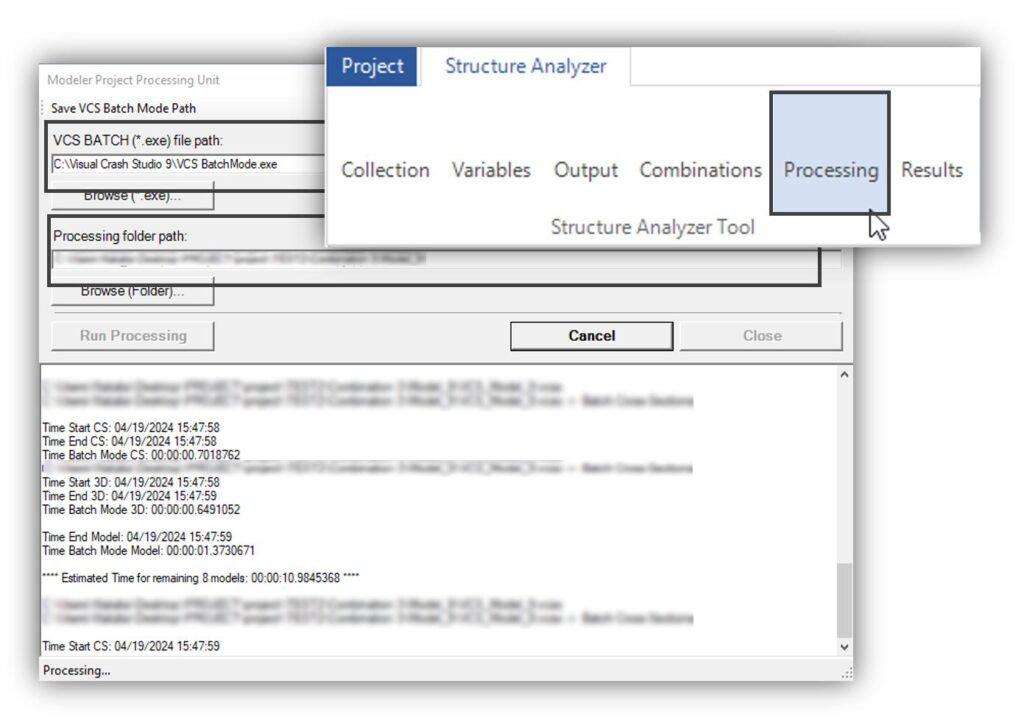
After generating the models, it is possible to calculate all model variants simultaneously. For processing purposes, simply indicate the appropriate directory where the generated combinations are stored.
* Computations for 20 such models were completed in under 3 minutes.
Once the calculations are finalized, all specified output results can be displayed and compared. Operations on these results can be performed similarly to those offered by the VCS Chart Wizard.
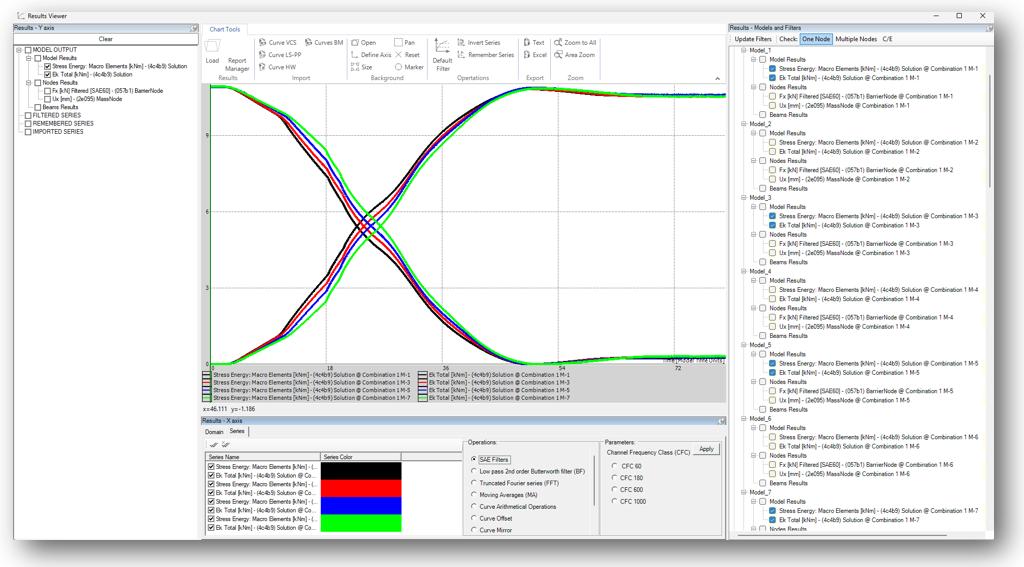 For enhanced convenience in analysis, filters can be used to reduce the amount of data, facilitating the identification of the desired solution among numerous model variants.
For enhanced convenience in analysis, filters can be used to reduce the amount of data, facilitating the identification of the desired solution among numerous model variants.
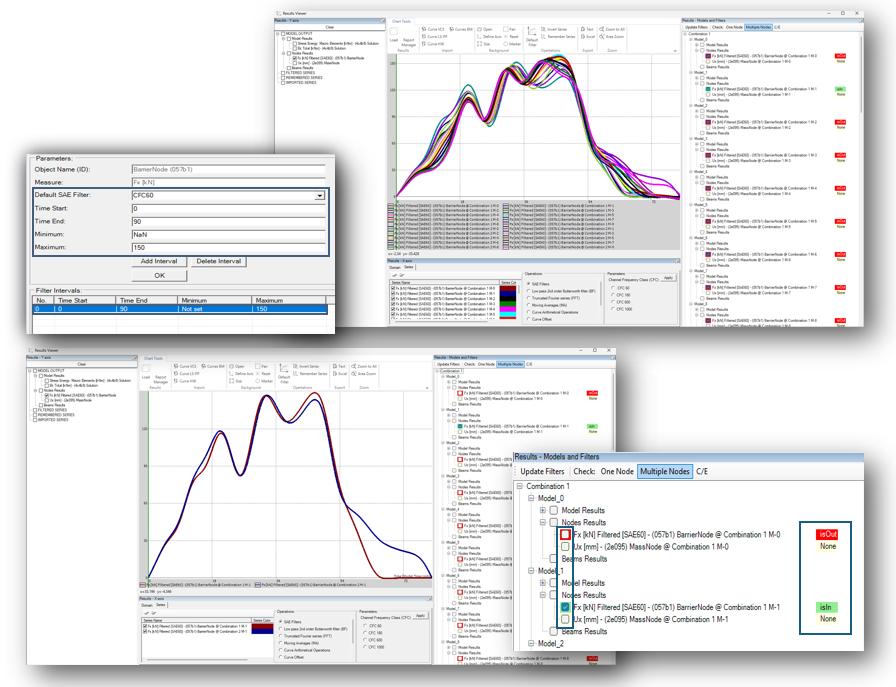 By default, the results are displayed in the time domain; however, the user can modify the domain to any parameter to enhance the comparison of results and simplify the selection of a solution that meets all expectations. After selecting the optimal solution, it can become the new base model.
By default, the results are displayed in the time domain; however, the user can modify the domain to any parameter to enhance the comparison of results and simplify the selection of a solution that meets all expectations. After selecting the optimal solution, it can become the new base model.
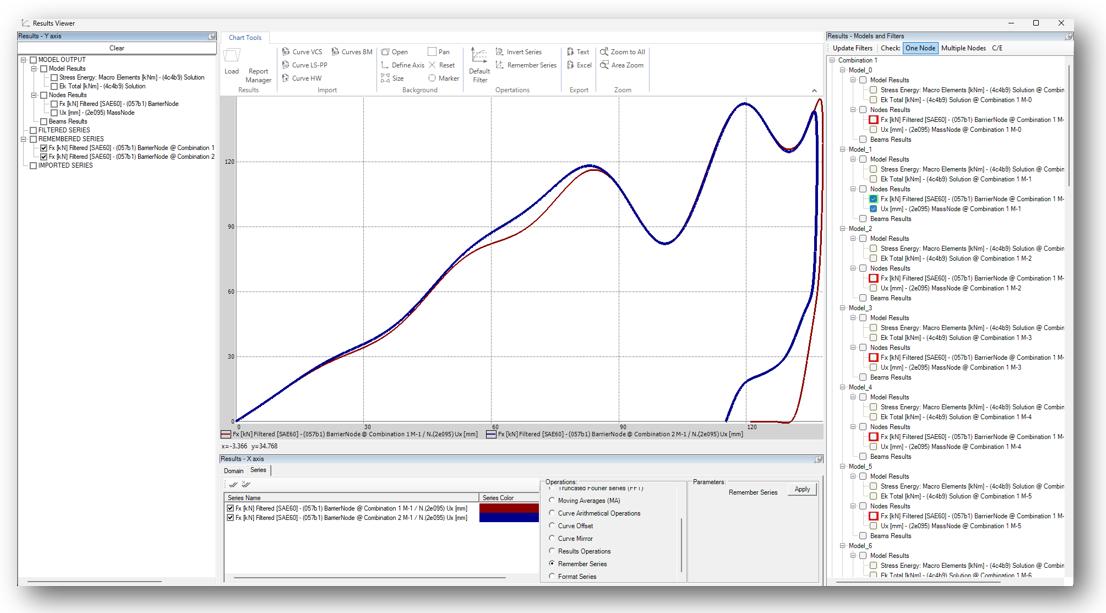
Please visit the (Structure Analyzer – manual) section for detailed information about using Structure Analyzer.
Please visit (Structure Analyzer – tutorial) section for additional training resources, use cases and tips on the capabilities of Structure Analyzer.
Please feel welcome to share with us all your comments and suggestions. We will try to meet your expectations in the future versions of Structure Analyzer software.
Agata Abramowicz Sokoll- Impact Design Europe
contact: as@impactdesign.pl
Agata Abramowicz Sokoll- Impact Design Europe
contact: as@impactdesign.pl
